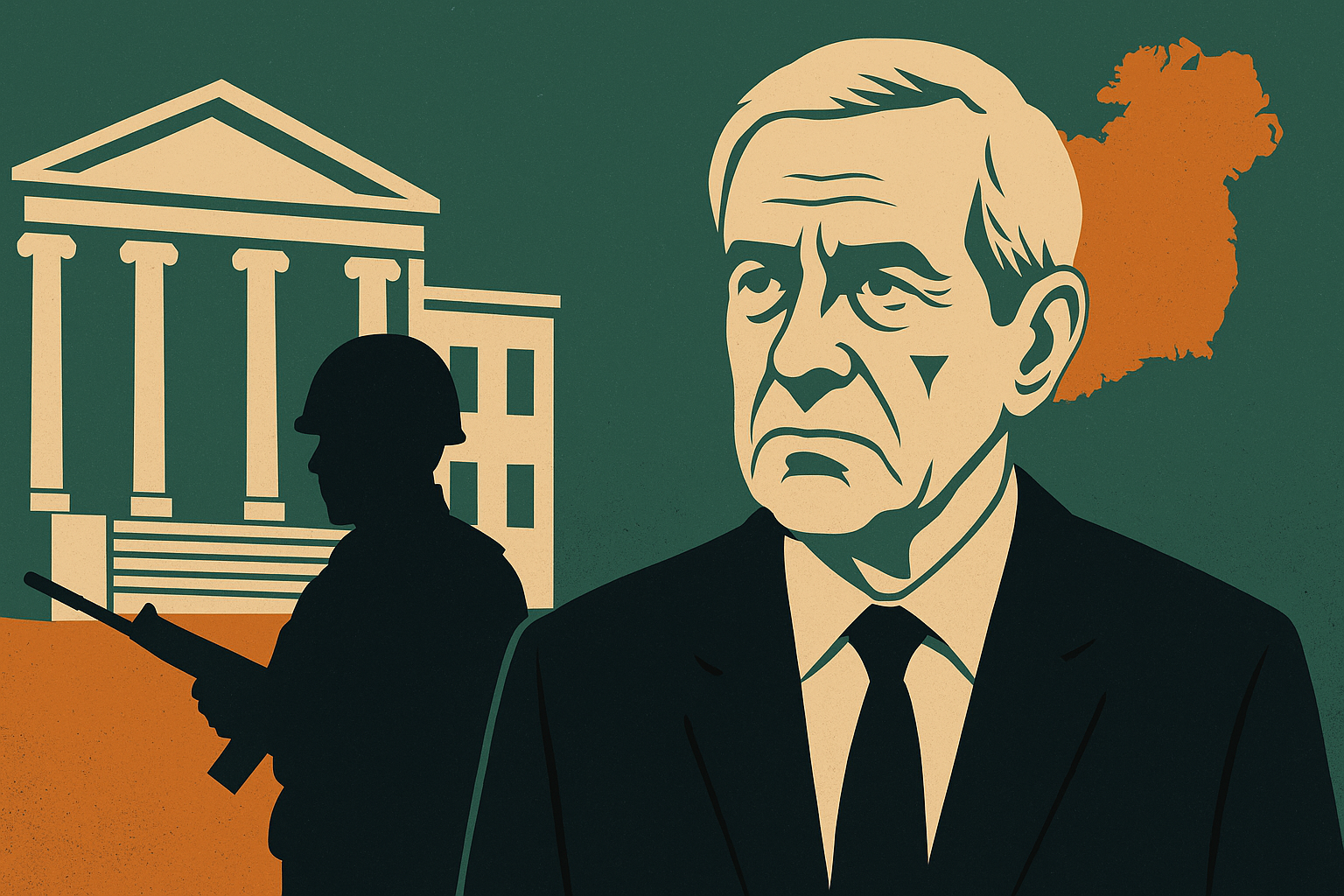The acquittal of a former British paratrooper known as “Soldier F” — charged with murder and attempted murder for his role in the Bloody Sunday killings of 1972 — has reignited debate over how the UK and Ireland address unresolved crimes from Northern Ireland’s Troubles.
After a 53-year wait for justice, families of the 13 unarmed civil rights protesters killed in Derry (Londonderry) left court in Belfast disappointed but defiant. John Kelly, whose brother was among those shot, told fellow relatives: “We put the bastard in [the dock] and we made him sweat!”
The case, the only trial arising from Bloody Sunday, collapsed after the judge ruled that evidence gathered decades ago was unreliable. While Judge Patrick Lynch acknowledged the paratroopers’ conduct had been “deeply condemnable,” he concluded that the available statements could not meet the evidentiary threshold for conviction.
“A 53-year-old statement cannot be cross-examined, nor can I assess the demeanour of a sheet of paper,” Lynch observed, emphasizing the challenges of adjudicating events that occurred “in probably no more than two minutes” over half a century ago.
A Symbolic Case for a New Legal Framework
The trial’s outcome underscores the complexities facing the new Northern Ireland legacy legislation, introduced this month at Westminster with the backing of the Irish government. The new framework is designed to replace the Legacy Act passed under the previous Conservative government, which was widely condemned by victims’ groups, rights organizations, and political parties for curtailing investigations into Troubles-era crimes.
The proposed law will establish a Legacy Commission, enabling families to seek resumed inquests and potential criminal probes — efforts that had been frozen under the former act. The Irish government has pledged its own supporting legislation, a police legacy unit, and €25 million in funding to ensure victims’ representation.
Kieran McEvoy, professor of law and transitional justice at Queen’s University Belfast, described the legislation as “a significant reset.” While acknowledging concerns about state disclosure of sensitive information, he urged pragmatism: “We cannot let the perfect be the enemy of the good.”
Hope and Skepticism Among Victims
Reactions to the legislative reset have been mixed. Colum Eastwood, leader of the nationalist SDLP, said there remains “a healthy dose of cynicism” after decades of unfulfilled promises — but also “hope” that the new approach could finally deliver truth and accountability.
Amnesty International called the initiative “the government’s final opportunity to get this right.”
The Independent Commission for Reconciliation and Information Recovery (ICRIR) — the existing body created under the prior Conservative law — continues to investigate high-profile cases such as the IRA’s Guildford pub bombings of 1974. The commission currently handles 102 cases involving 182 deaths, processing roughly 11 new cases a month. Most involve victims of paramilitary violence, which accounted for the majority of fatalities during the Troubles.
Balancing Justice, Memory, and Politics
The UK government views the Soldier F verdict as supporting its case for a new, streamlined legacy process that would prevent aging veterans from prolonged legal jeopardy.
A senior UK official told the Financial Times that the new bill “should reduce the risk of veterans being dragged through the courts for years.” Most remaining cases against former soldiers, they added, “are unlikely to proceed, given the absence of new evidence.”
However, critics such as Gerry Adams, former Sinn Féin leader, have pledged legal challenges to the legislation, arguing that it disproportionately protects British security forces while limiting victims’ compensation. Adams, who was interned without trial in the 1970s, called the proposal “a denial of justice.”
An Unfinished Chapter
For the families of Bloody Sunday, the verdict was another painful chapter in a long struggle for recognition and accountability.
“Hopefully people in future cases will come away with a better result,” said John Kelly. “There are hundreds of families still trying to achieve truth and justice for their loved ones.”
As London and Dublin attempt to reset their approach to legacy cases, the acquittal of Soldier F has reinforced one undeniable truth — the legal and moral reckoning with Northern Ireland’s past remains far from over.








